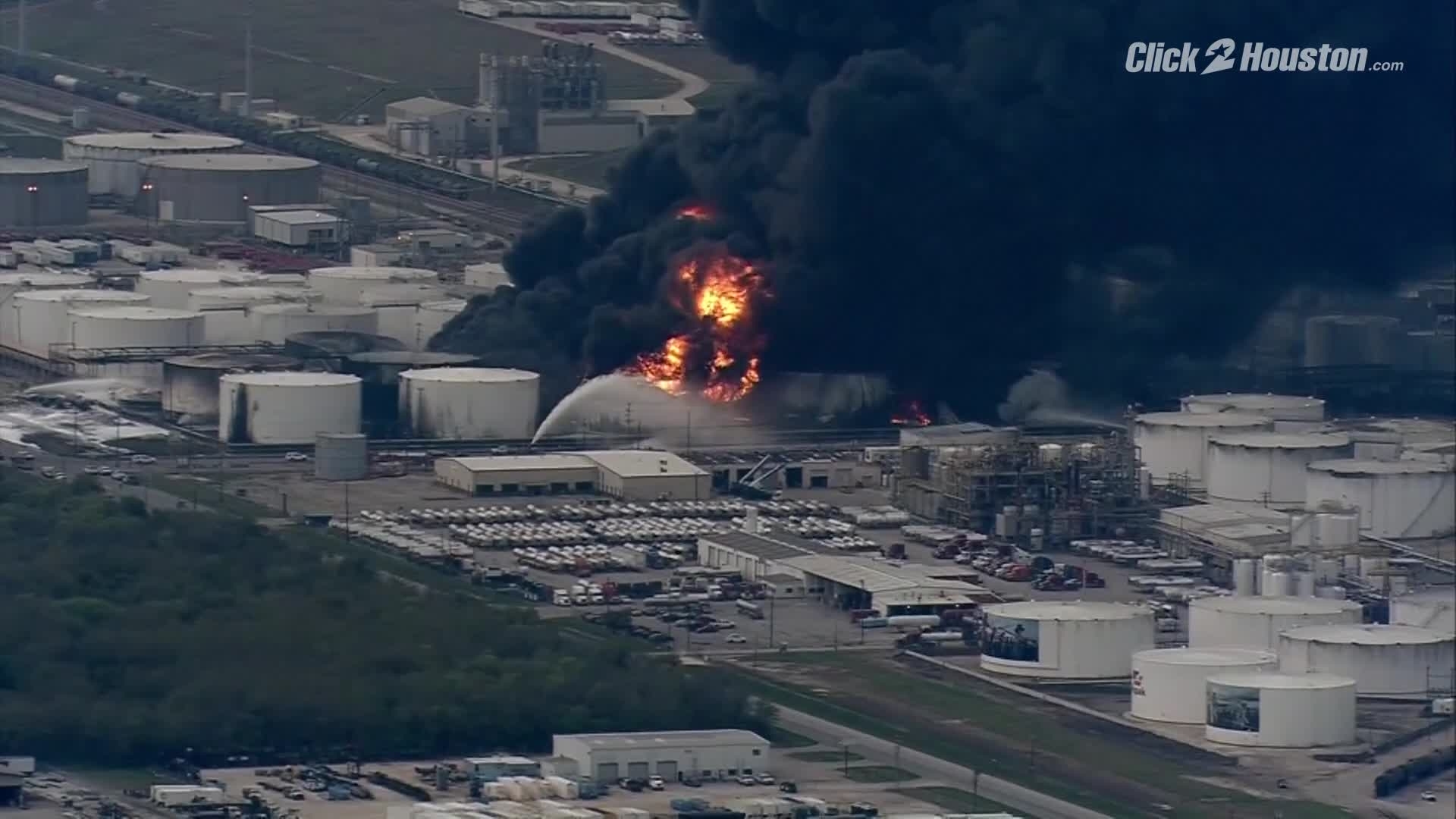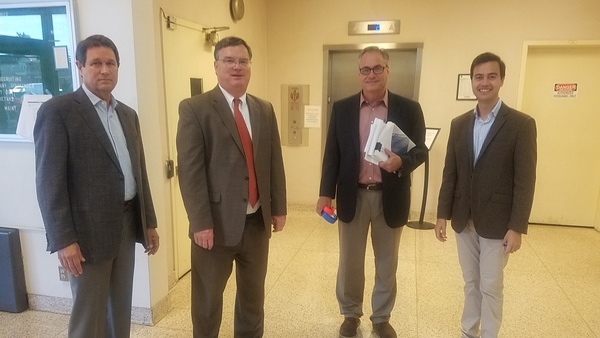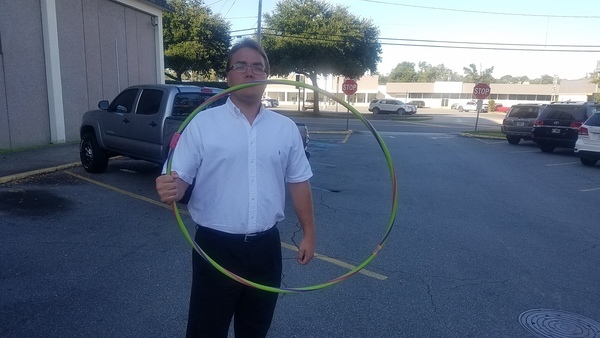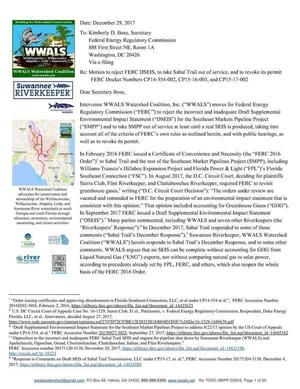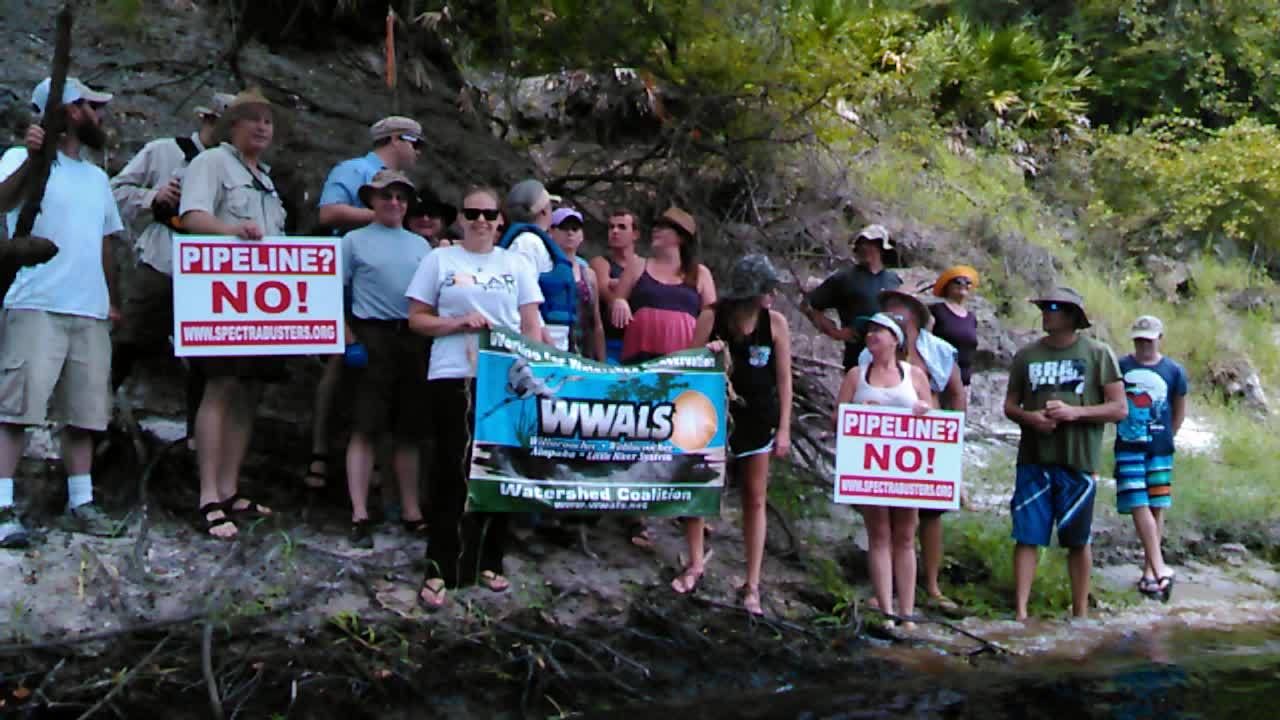Is Ms. Grover is a Vulcan now?
Asked why a pipeline dispatcher apparently told the fire department
that “this was a new system and they are still
learning,” Grover responds that “it would be illogical
to speculate as to what the fire department has quoted as part of a
conversation.”

Or are those just Pinocchio donkey ears?
That would be more logical.
Who do you believe?
A local county fire department, or someone paid by a pipeline company
to put the best face on any event?
Especially when she didn’t actually deny anything Marion County Fire Rescue reported?
Amy Martyn, ConsumerAffairs, 14 September 2017,
Company says its natural gas pipeline ‘operated safely’ through
Hurricane Irma; However, activists say the Sabal Trail Pipeline is
dangerous and needs to be removed,
The Sabal Trail Pipeline, a new natural gas pipeline that critics
have charged is uncomfortably close to Florida’s main aquifer,
“operated safely throughout Hurricane Irma,” a
spokesperson with the pipeline operator tells ConsumerAffairs.
“We were and continue to be able to meet any customer
needs,” says an email from Andrea Grover of Enbridge Energy,
the natural gas company behind the Sabal Trail Pipeline.
“Operations was not affected by the hurricane impacts.”
Andrea Grover’s linkedin page
lists her as
“Director, Stakeholder Outreach at Enbridge (Oil & Gas)”.
For four years we were told the pipeline’s “stakeholders”
were landowners along the way.
You know, like Brooks County, Georgia, farmer Randy Dowdy, whose
world-record-holding soybean fields Sabal Trail destroyed,
causing generational damage
that Sabal Trail has not addressed.
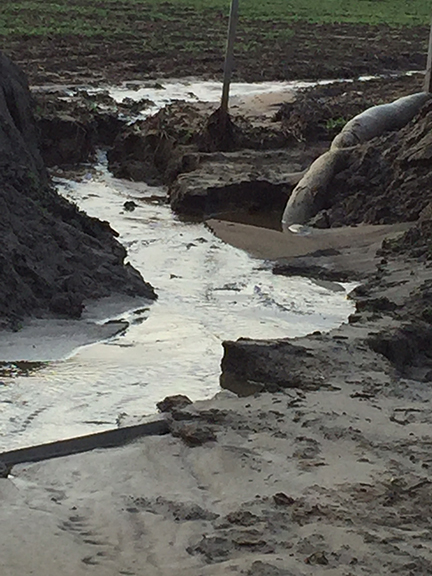
Or Robin Koon, whose family graveyard Sabal Trail disturbed,
which is part of why he helped Sierra Club, Flint Riverkeeper, and Chattahoochee Riverkeeper get standing for
their recent historic victory over FERC
that could still shut down Sabal Trail
and
already was cited in a denial of a different pipeline.
Curious how now that Sabal Trail has gotten its pipe in the ground,
Ms. Grover no longer mentions “stakeholders,” just “customer needs.”
Which is all Sabal Trail has been about all along:
profit for a few utilities and pipeline companies,
and for the frackers in the Marcellus Shale and Oklahoma and elsewhere
to sell their greenhouse-gas-producing product through
a 500-mile IED.
Even FPL has admitted Florida needs no new electricity until 2024 at the earliest,
and a stock analyst has revealed that all Sabal Trail is doing is decreasing
gas shipped into Florida through FGT and Gulfstream by the same amount
Sabal Trail is shipping.
Why did local landowners have to give up easements
for nothing but profit for utiltiies, frackers, and Spectra Energy of Houston, Texas, now owned by Enbridge of Calgary, Alberta, Canada?
But is Sabal Trail even serving those customers well?
Cody Suggs reported yesterday from the Hildreth Compressor Station site
near O’Brien, in Suwannee County, Florida, that power is still off there
and it took two days for trees to be cleared off the access road.

Photo: Cody Suggs at Sabal Trail Hildreth Compressor Station Site 2017-09-14.
Natural gas began flowing through the Sabal Trail Pipeline in June
2017. People like John Quarterman, a Georgia landowner and activist
with WWALS Watershed Coalition, a group that aims to protect
watersheds in Georgia and Florida, say that federal regulators are
typically asleep at the wheel for these projects.
“We have this 500-mile improvised explosive device, under our
rivers, next to our schools and next to people’s houses and nobody
is handling pipeline safety,” he tells ConsumerAffairs.
 Well, I remember three years ago when
Ms. Grover said she found it “hard to believe” that Sabal Trail
was threatening landowners with eminent domain until the Valdosta Daily Times
(VDT) published one of the actual letters.
Well, I remember three years ago when
Ms. Grover said she found it “hard to believe” that Sabal Trail
was threatening landowners with eminent domain until the Valdosta Daily Times
(VDT) published one of the actual letters.
Ms. Grover’s response?
She used the VDT to threaten landowners with eminent domain.
That was shortly after Sabal Trail attempted to claim customers in Georgia
to justify the Georgia eminent domain they were threatening, but
didn’t bother to contact the local governments they claimed needed the gas.
 Four years ago, Ms. Grover and Brian Fahrenthold, “the state and local government affairs director for Houston-based Spectra Energy”,
told me they were “not familiar with”
Spectra’s
well-known public record of safety violations.
She did claim everybody in Pennsylvania was happy after the infamous
Steckman Ridge Compressor Station leak, for which she was called in to
do spin control, which led to
a rebuttal from Pennsylvania, beginning:
Four years ago, Ms. Grover and Brian Fahrenthold, “the state and local government affairs director for Houston-based Spectra Energy”,
told me they were “not familiar with”
Spectra’s
well-known public record of safety violations.
She did claim everybody in Pennsylvania was happy after the infamous
Steckman Ridge Compressor Station leak, for which she was called in to
do spin control, which led to
a rebuttal from Pennsylvania, beginning:
“I speak for more than a dozen families who live next to or near the
problematic compressor facility; and your statement is incorrect and
misleading.”
Neither Ms. Grover nor Spectra Energy ever responded to that rebuttal, to my knowledge.
Please let me be clear: this is not about Ms. Grover personally.
As I told her the first time I met her, she is the best I have ever seen
at doing her job.
Which is to market her company.
Too bad her company is a pipeline company that gouged under our rivers,
causing a frac-out and sinkholes,
destroyed farmlands, goes right past schools and homes,
and has already
leaked hazardous Mercaptan at its Dunnellon, Florida, Compressor Station site.
 That Steckman Ridge Compressor Station blowout?
They called in Ms. Grover because
another “stakeholder outreach” Spectra Energy rep. had to backtrack.
And for that 2009 incident,
the Commonwealth of Pennsylvania fined Spectra in 2010.
That Steckman Ridge Compressor Station blowout?
They called in Ms. Grover because
another “stakeholder outreach” Spectra Energy rep. had to backtrack.
And for that 2009 incident,
the Commonwealth of Pennsylvania fined Spectra in 2010.
Back to the ConsumerAffairs story:
Sinkholes and hurricanes
Florida’s landscape is characterized by
karst terrain, or land made of porous limestone, caverns, and water
dissolving into the bedrock, all of which are a recipe for
sinkholes. Man-made infrastructure can increase the chance of a
sinkhole forming, and so can intense rain.
“Man-induced sinkholes typically involve collapse of old mine
workings, drainage infrastructure or other underground
workings,” explained meteorologist Jim Andrews in one recent
report. “Naturally, such can fail over time, and rainfall can
be a major factor.”
In fact, at least four homes have been evacuated in central Florida
this week after sinkholes formed in the wake of Hurricane Irma,
according to reporters on the scene. Still, Enbridge Energy says
that their pipeline can handle sinkhole-prone terrain.
Well, we’ve already come pretty close to finding out, with
a sinkhole a half mile away Monday
from Sabal Trail’s sister Florida Southeast Connection (FSC).
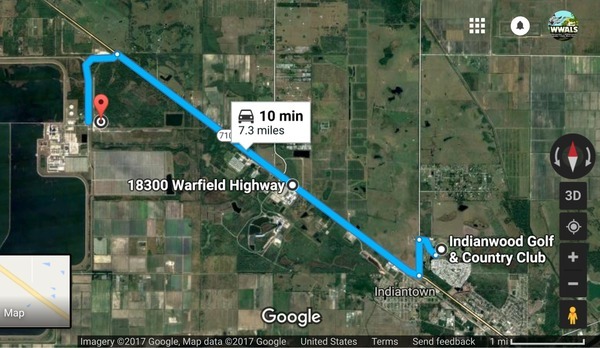
Sinkhole, FPL pipeline, FLiNG, FSC; map by John S. Quarterman for WWALS.
Back to the ConsumerAffairs story:
“While opposition has raised the issue of the pipeline being
constructed in karst terrain, this was thoroughly examined by the
appropriate federal and state agencies,” responds Enbridge
representative Andrea Grover by email. “They concluded it was
unlikely that Sabal Trail would impact springs or the Floridan
Aquifer in the karst regions. Sabal Trail is well equipped to safely
construct and operate the pipeline in karst areas.”
Violations Sabal Trail and the Florida Department of Environmental Protection (FDEP)
told us would not happen,
under oath in WWALS vs. Sabal Trail & FDEP (October 2015),
have already been happening.

Photo of John S. Quarterman at Sabal Trail frac-out into the Withlacoochee River between Quitman and Valdosta, Georgia: Bruce Ritchie, Politico, 17 November 2016.
But Quarterman says he does not trust the company to voluntarily
report any issues that may arise. Activists with his group who live
along the pipeline route have been tracking the project themselves,
both before and after Hurricane Irma, to make sure no leaks,
sinkholes underneath the pipeline, or any other issues have
occurred.
Why, yes, I do have some sceptism about that.
As always, there’s more
in the story.
No more pipelines.
Here are some things you can do to help with that.
Let the sun rise on Florida, Georgia, Alabama, the southeast,
and the rest of the country and the world.
-jsq, John S. Quarterman, Suwannee RIVERKEEPER®
You can join this fun and work by becoming a WWALS member today!
![[Graph 93-percent-AGAINST 10 14 20-0001]](https://www.wwals.net/pictures/2020-10-19--m-cores/Graph_93-percent-AGAINST_10_14_20-0001.jpg)

![[Florida Suncoast Conector and Texas SH 130: broke from the start]](https://www.wwals.net/pictures/2020-10-14--m-cores/many.jpg)
![[SCC MCORES-Draft-Task-Force-Report-Sections-9.28.20-0009]](https://www.wwals.net/pictures/2020-10-14--m-cores/SCC_MCORES-Draft-Task-Force-Report-Sections-9.28.20-0009.jpg)
![[Cracked dirt and SH 130 construction]](https://www.wwals.net/pictures/gretchen/2006-08-11--sh-130/p8110309.jpg)
![[Third-party inspection, recission, stay, SEIS]](https://www.wwals.net/pictures/2020-07-20--wwals-brief-ferc-sabal-trail-phase-ii-rehearing/big/2020-07-20--WWALS-Brief-CP15-17-005-0001.jpg)
